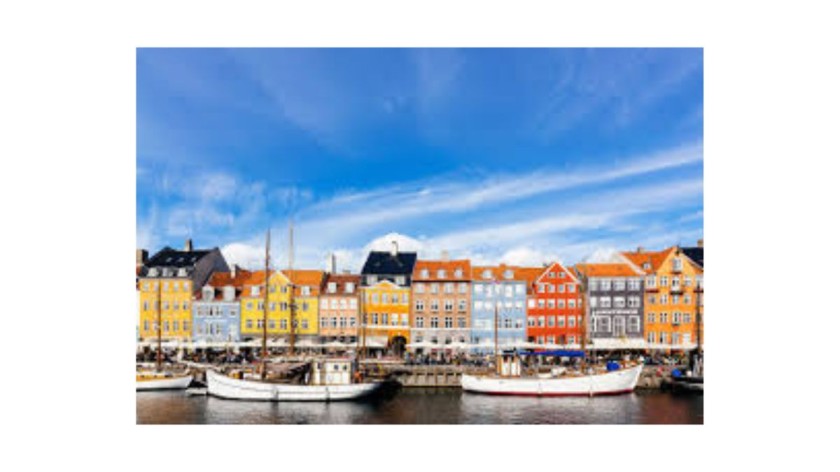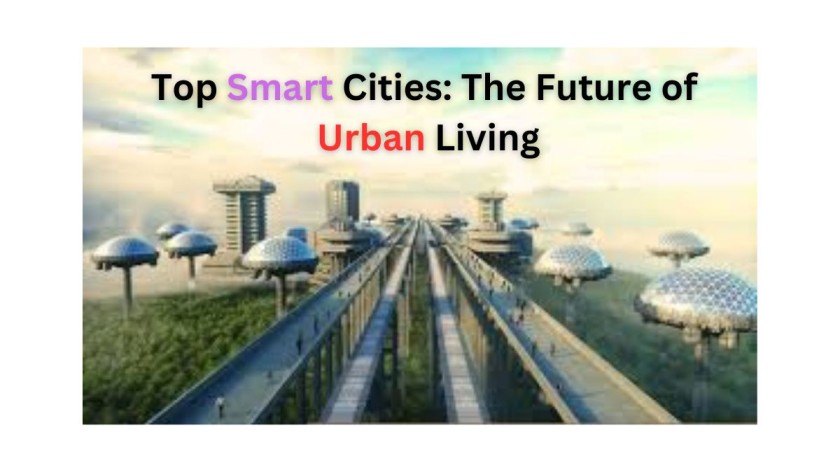Table of Contents
Introduction:
As technology continues to advance at an unprecedented pace, cities across the globe are increasingly adopting smart solutions to enhance the quality of life for their residents. These smart cities integrate a variety of cutting-edge technologies to address urban challenges and improve overall living conditions. At the heart of this transformation are Information and Communication Technologies (ICT), which facilitate seamless connectivity and data exchange across various urban systems. Additionally, the Internet of Things (IoT) plays a crucial role by embedding sensors and devices into infrastructure, enabling real-time monitoring and management of city resources.
Data analytics is another cornerstone of smart city initiatives, empowering city planners and administrators to make informed decisions based on vast amounts of data collected from multiple sources. By leveraging these technologies, smart cities can manage resources more efficiently, from energy and water to transportation and waste management. This not only helps in reducing environmental impact but also promotes sustainability and resilience against future challenges.
Furthermore, smart cities focus on enhancing urban living by improving public services, ensuring safety and security, and fostering economic growth. Advanced transportation systems, smart grids, and digital public services are just a few examples of how these cities are transforming the urban experience for their residents.
In this article, we will explore the top 10 smart cities that are at the forefront of this urban revolution, setting new benchmarks for innovation, sustainability, and quality of life. These cities are not just leveraging technology to solve immediate problems but are also pioneering new approaches to urban planning and development that will shape the future of urban living.
List of Top 10 Smart Cities: The Future of Urban Living
(1) Singapore:

Thanks to its comprehensive Smart Nation initiative, Singapore is often cited as the epitome of a smart city. This program integrates technology into various facets of urban life, including governance, healthcare, education, and transportation. One notable project is the Smart Mobility 2030 initiative, which utilizes IoT to manage traffic flow, reduce congestion, and provide real-time travel information. Singapore also boasts a sophisticated water management system that uses sensors to monitor water quality and prevent leaks. Moreover, the city’s commitment to sustainability is evident in its use of renewable energy sources and green buildings.
(2) Barcelona, Spain:

Barcelona has established itself as a pioneer in smart city technologies within Europe. The city’s extensive use of IoT and big data has significantly improved public services. For example, Barcelona’s smart street lighting system adjusts brightness based on pedestrian and vehicular traffic, reducing energy consumption by 30%. The city’s waste management system is equally innovative, using sensors to monitor waste levels in bins and optimize collection routes. Additionally, Barcelona’s integrated public transportation system provides real-time data to commuters, improving efficiency and reducing wait times.
(3) Tokyo, Japan:

Tokyo is synonymous with technological innovation and advanced urban planning. The city leverages IoT and AI to manage its complex transportation networks, ensuring smooth and efficient operation. For instance, Tokyo’s traffic management system uses real-time data to control traffic lights and reduce congestion. The city also employs AI-powered surveillance systems to enhance public safety and security. In terms of sustainability, Tokyo has invested heavily in renewable energy and energy-efficient buildings, significantly reducing its carbon footprint.
(4) Amsterdam, Netherlands:

Amsterdam is a global leader in smart mobility and environmental sustainability. The city has implemented a comprehensive smart grid that optimizes energy distribution and consumption. Amsterdam’s extensive network of electric vehicle charging stations encourages the use of clean transportation. Additionally, the city’s smart water management system uses real-time data to prevent flooding and ensure efficient water use. Amsterdam’s commitment to reducing carbon emissions is further demonstrated by its promotion of cycling and its investment in renewable energy sources.
(5) Copenhagen, Denmark:

Copenhagen is renowned for its green initiatives and smart city solutions. The city aims to become carbon-neutral by 2025, with various projects focused on sustainable energy, smart waste management, and intelligent transportation systems. Copenhagen’s district heating system, which uses waste heat from power plants to heat homes, is a prime example of its innovative approach to sustainability. The city’s extensive cycling infrastructure, including dedicated bike lanes and bike-sharing programs, also contributes to its reputation as a forward-thinking smart city.
(6) New York City, USA:

New York City is at the forefront of smart city innovation in the United States. The city’s smart traffic management system uses sensors and cameras to monitor and control traffic flow, reducing congestion and improving safety. New York’s public Wi-Fi initiative, LinkNYC, provides free high-speed internet access across the city, bridging the digital divide. Additionally, the city employs advanced security systems, including facial recognition and predictive policing, to enhance public safety. New York’s focus on data-driven solutions and public-private partnerships has paved the way for its smart city transformation.
(7) Dubai, UAE:

Dubai is rapidly evolving into a smart city, driven by its ambitious Dubai 2021 plan. The city’s smart governance initiatives include the use of blockchain technology for secure and transparent transactions. Dubai’s smart living projects encompass a wide range of services, from smart homes equipped with IoT devices to intelligent transportation systems that provide real-time traffic information. The city’s focus on smart economy projects, such as the Dubai Future Accelerators program, aims to foster innovation and entrepreneurship. Dubai’s commitment to sustainability is evident in its use of solar energy and green building practices.
(8) Seoul, South Korea:

Seoul is a global leader in the integration of smart technologies. The city’s smart transportation system uses big data and IoT to optimize public transportation routes and schedules, reducing wait times and improving efficiency. Seoul’s smart healthcare initiatives include telemedicine services and AI-powered diagnostic tools, enhancing access to quality healthcare. The city’s focus on digital innovation is further demonstrated by its extensive public Wi-Fi network and its support for startups and tech companies. Seoul’s commitment to sustainability is reflected in its use of renewable energy and energy-efficient buildings.
(9) Helsinki, Finland:

Helsinki is known for its open data policies and innovative smart city projects. The city’s open data platform allows residents and businesses to access a wealth of information, fostering transparency and citizen engagement. Helsinki’s smart transportation system uses real-time data to optimize traffic flow and reduce congestion. The city’s smart energy initiatives include the use of renewable energy sources and energy-efficient buildings. Helsinki’s commitment to sustainability is further demonstrated by its extensive green spaces and its focus on reducing carbon emissions.
(10) San Francisco, USA:

San Francisco is a hub for technological innovation and smart city development. The city’s smart energy management system uses real-time data to optimize energy use and reduce waste. San Francisco’s advanced public transportation system includes smart buses and trains that provide real-time arrival information to commuters. The city’s focus on sustainability is evident in its extensive use of renewable energy and its commitment to reducing carbon emissions. San Francisco’s emphasis on technology-driven solutions and public-private partnerships makes it a leader in smart urban living.
Conclusion:
The future of urban living is being shaped by these smart cities, which are leveraging technology to create more efficient, sustainable, and livable environments. From Asia to Europe to North America, these cities are setting the standard for what it means to be a smart city. As technology continues to evolve, we can expect even more cities to join the ranks of these top smart cities, further enhancing the quality of life for urban residents worldwide.
Read more- Essential Wi-Fi Speed Checkers for Your Phone
FAQ-
What defines a smart city?
A smart city integrates advanced technologies such as Information and Communication Technologies (ICT), the Internet of Things (IoT), and data analytics to manage resources efficiently, reduce environmental impact, and enhance the quality of urban living. This includes optimizing energy use, improving public transportation, enhancing public safety, and providing better public services.
How do smart cities use technology to improve the quality of life?
Smart cities use a combination of ICT, IoT, and data analytics to create interconnected systems that enhance various aspects of urban living. For example, smart traffic management systems reduce congestion, smart grids optimize energy consumption, and real-time data helps improve public services like waste management and public transportation.
What are some examples of smart city initiatives?
Examples include Singapore’s Smart Nation initiative, Barcelona’s smart street lighting and waste management systems, Tokyo’s AI-powered traffic management, and Amsterdam’s smart grid and electric vehicle charging stations. These initiatives aim to improve efficiency, sustainability, and the overall urban experience for residents.
Why is sustainability important for smart cities?
Sustainability is crucial for smart cities to ensure long-term environmental health, economic growth, and social well-being. Sustainable practices in smart cities include using renewable energy, reducing carbon emissions, implementing green building practices, and promoting efficient resource management to create a livable and resilient urban environment.
How do smart cities handle data privacy and security?
Smart cities implement robust data privacy and security measures to protect residents’ information. This includes encryption, secure data storage, regular security audits, and compliance with data protection regulations. Cities also use technologies like blockchain to ensure transparency and security in transactions.
What are the benefits of living in a smart city?
Benefits of living in a smart city include improved public services, enhanced transportation systems, better healthcare access, increased public safety, efficient resource management, and a higher overall quality of life. Residents also benefit from the city’s focus on sustainability and environmental health.
What challenges do smart cities face?
Challenges include ensuring data privacy and security, managing the high costs of technology implementation, addressing digital divide issues, and integrating new technologies with existing infrastructure. Additionally, there are concerns about the potential loss of jobs due to automation and the need for continuous technological updates.
How do smart cities promote economic growth?
Smart cities promote economic growth by fostering innovation, attracting tech startups, improving infrastructure, and creating a conducive environment for businesses to thrive. Technologies like IoT and data analytics help optimize resource use and operational efficiency, reducing costs and boosting productivity.
Can smaller cities become smart cities?
Yes, smaller cities can become smart cities by gradually integrating smart technologies and adopting scalable solutions tailored to their specific needs and resources. Many smart city initiatives can be implemented incrementally, allowing smaller cities to build their smart infrastructure over time.
What is the future outlook for smart cities?
The future of smart cities looks promising, with continuous advancements in technology driving further innovation and improvement. As more cities adopt smart solutions, we can expect increased sustainability, enhanced quality of life, and more efficient urban management. Emerging technologies like AI, 5G, and blockchain will further revolutionize how cities operate and serve their residents.

